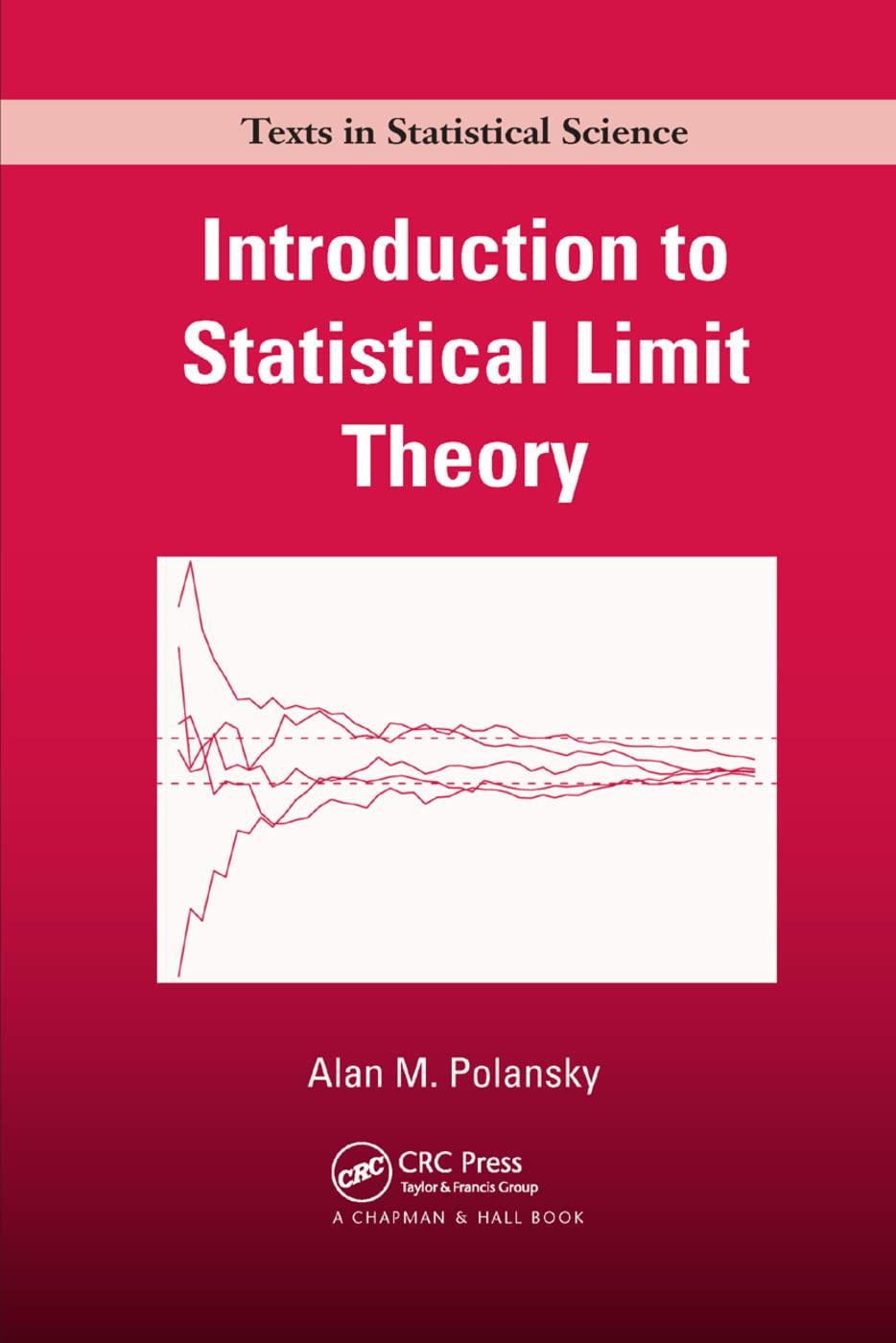Suppose (X_{1}, ldots, X_{n}) is a set of independent and identically distributed random variables from a (operatorname{Poisson}(theta))
Question:
Suppose \(X_{1}, \ldots, X_{n}\) is a set of independent and identically distributed random variables from a \(\operatorname{Poisson}(\theta)\) distribution where \(\theta \in \Omega=(0, \infty)\). Garwood (1936) suggests a \(100 \alpha \%\) confidence interval for \(\theta\) using the form
\[C(\alpha, \boldsymbol{\omega})=\left[\frac{\chi_{2 Y ; \omega_{L}}^{2}}{2 n}, \frac{\chi_{2(Y+1) ; \omega_{U}}^{2}}{2 n}ight]\]
where \[Y=\sum_{i=1}^{n} X_{i}\]
and \(\boldsymbol{\omega}=\left(\omega_{L}, \omega_{U}ight) \in W_{\alpha}\) where \[W_{\alpha}=\left\{\boldsymbol{\omega}=\left(\omega_{1}, \omega_{2}ight): \omega_{L} \in[0,1], \omega_{U} \in[0,1], \omega_{U}-\omega_{L}=\alphaight\}\]
Therefore \(L\left(\omega_{L}ight)=\frac{1}{2} n^{-1} \chi_{2 Y ; 1-\omega_{L}}^{2}\) and \(U\left(\omega_{U}ight)=\frac{1}{2} n^{-1} \chi_{2(Y+1) ; 1-\omega_{U}}^{2}\). Derive an observed confidence level based on this confidence interval for an arbitrary interval subset \(\Psi=\left(t_{L}, t_{U}ight)\) of the parameter space of \(\theta\).
Step by Step Answer:






